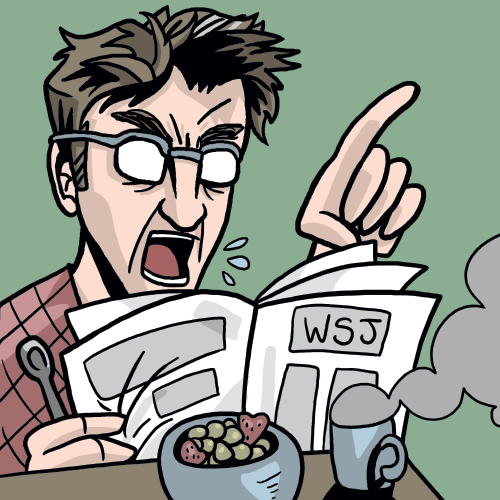News/Op-Eds
MACROECONOMICS, MONETARY POLICY, INFLATION, DEFICITS, FISCAL THEORY
Wall Street Journal Oped May 9 2025. Advice for the strategy review. Don’t just polish adjectives, prepare to make the hard choices ahead.
IMF Finance and Development March 2024, also at Cato. Inflation teaches us that supply, not demand, constrains our economies, and government borrowing is limited.
Wall Street Journal Oped, December 27 2023. Paying interest on reserves and providing abundant reserves is an important advance in monetary policy.
WSJ oped on what theories account for 2021-2022 inflation.
Project Syndicate July 27 2023. No. Target the price level.
Globe and Mail. Nov 14 2022 WIth Jon Hartley. Inflation and fiscal policy, Canada edition
Wall Street Journal July 28 2022. Ending inflation will require fiscal and monetary policy acting together.
Project Syndicate April 14 2022. Inflation washes away many illusions. Blog post
Project Syndicate Jan 19 2022. Account for the grand bailout of 2020, and think a little bit about incentives, please. Blog post
Project Syndicate December 23 2021. Blog Post. They dropped $5 trillion of debt from helicopters, what do you expect?
September 17 2021 An essay at Project Syndicate. Blog post.
National Review Online April 26, 2021. With Kevin A. Hassett. Anchoring means people believe the Fed will repeat 1982. Do they? Ungated blog post version
A talk given at the UCSD Economics roundtable June 11 2021. Inflation, Fed policy, fiscal pressures, and a quick tour of the Fed’s entrenchment of bailouts, and forays to climate change and social justice. Youtube video here, slides here, blog post with a bit more commentary here.
Does monetary policy threaten inflation? National Review Online March 9 2021. (local pdf)
A review of Stephanie Kelton’s “The Deficit Myth.” Wall Street Journal, June 5 2020. Ungated full text on my blog, and a pdf of the print version here.
Washington Post. Debt and deficits are a danger. Rising interest rates could spark big trouble quickly. Reforming entitlements is the answer, and sooner better than later. Written with Mike Boskin, John Cogan, George Shultz, and John Taylor. Local copy (pdf).
1) The Fed has not been holding interest rates down. 2) QE did basically nothing. 3) The Fed is not stoking asset price bubbles. 4) The Fed has little control over real rates 5) The economy is stable 6) Interest rates only temporarily lower inflation. 7) The Phillips curve is dead 8) Long-term fiscal policy, not Fed mistakes, pose the greatest danger to inflation. Slides.
Wall Street Journal. Zero rates and zero inflation are pretty good. local pdf
Wall Street Journal. Fears of "tipping" into deflation are overblown. I poke a little fun at sticky wages, Fed headroom, deflation-induced defaults and the long-predicted Keynesian deflationary spiral that never seems to happen, and the doom and gloom language from the ECB, IMF and other worriers who just happen to (of course) want to spend trillions to fix this latest "biggest economic problem."
Wall Street Journal
Slides for a talk at Grant's spring conference. I haven't written up the talk yet, but if you were there and want the pictures here they are.
Wall Street Journal. Local pdf. (Better:) Blog post with a few cuts restored and some notes. If the Fed wants to raise rates to 5%, it will raise the deficit by $900 billion. Will Congress let it do that? Fiscal policy limits monetary policy in a time of large debt. A much longer maturity structure would help.
How the US Treasury can both lengthen and shorten its debt at the same time, to buy insurance against interest rate rises and provide "liquidity." A short paper diguised as comments on Greenwood, Hanson, and Stein “A Comparative Advantage Approach to Government Debt Maturity†at the Second Annual Roundtable on Treasury Markets and Debt Management, US Treasury, Nov. 15 2012.
National Affairs 9 (Fall 2011). html An essay summarizing the threat of inflation from large debt and deficits. The danger is best described as a "run on the dollar." Future deficits can lead to inflation today, which the Fed cannot control. I also talk about the conventional Keynesian (Fed) and monetarist views of inflation, and why they are not equipped to deal with the threat of deficits. This essay complements the academic (equations) "Understanding Policy" article (see below) and the short Why the 2025 budget matters today WSJ oped (see below)
